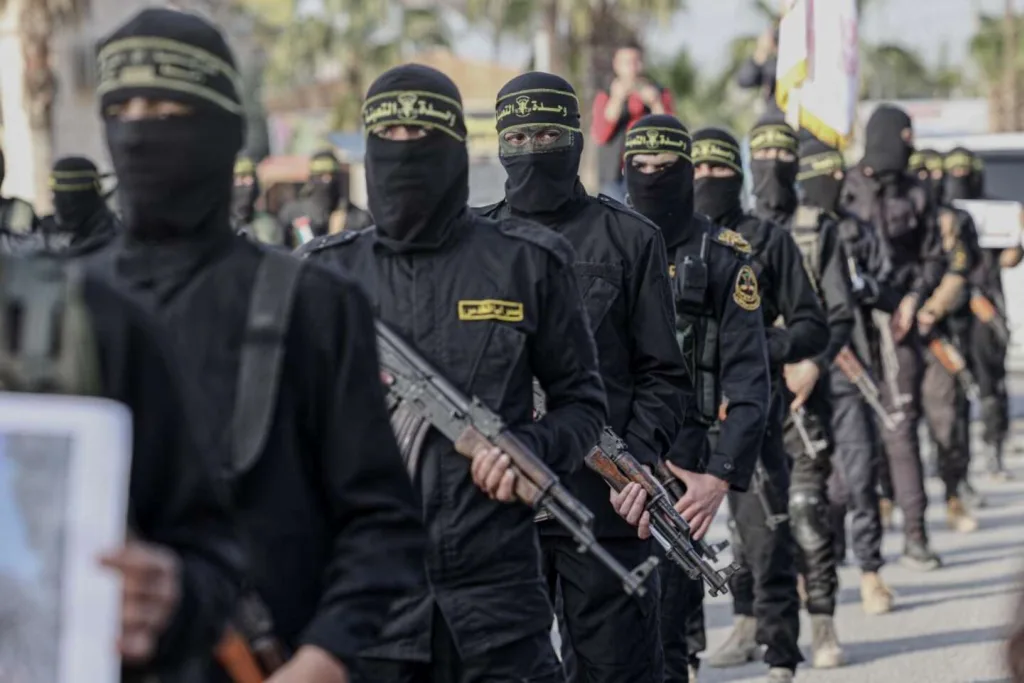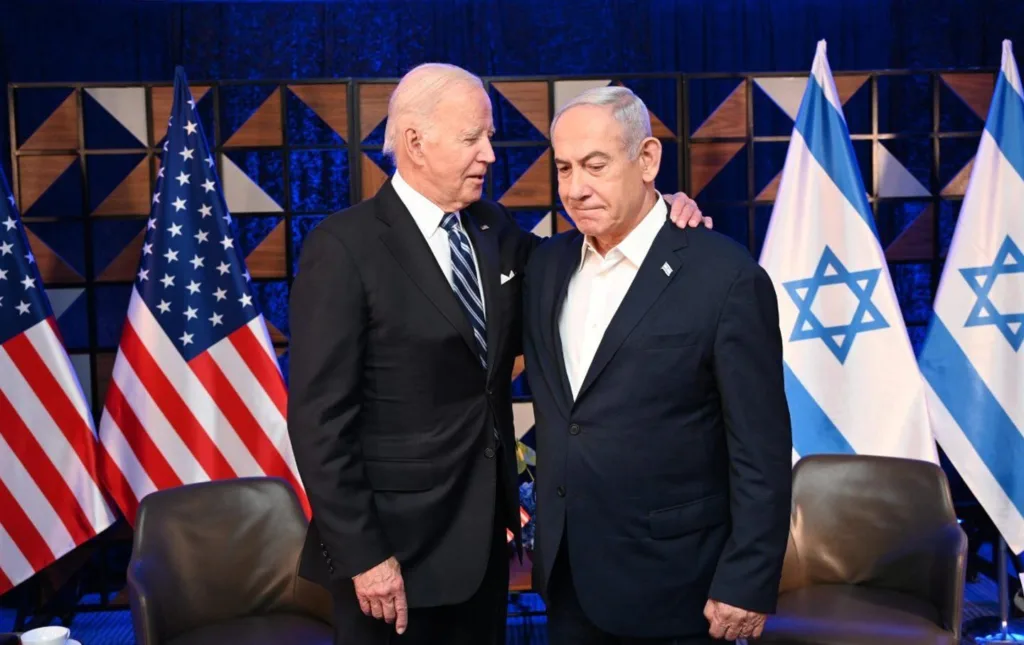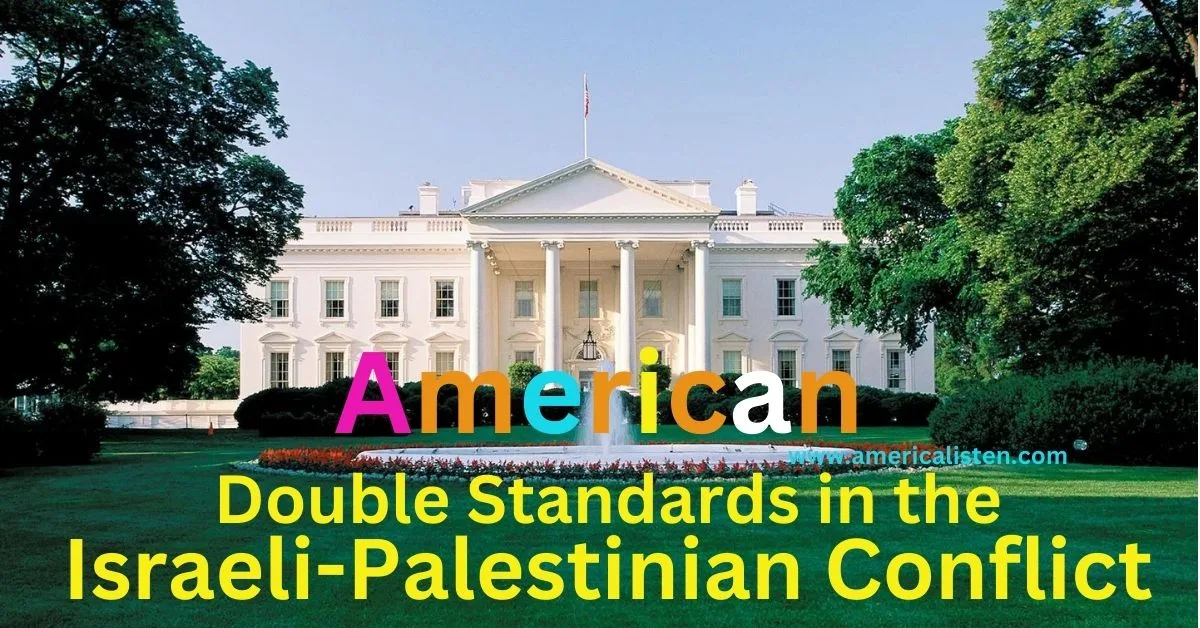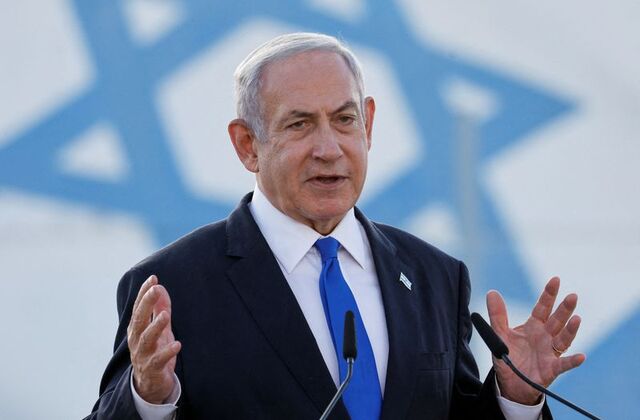The Israeli-Palestinian conflict has persisted for decades, causing immense suffering and unrest in the Middle East. Central to this ongoing struggle are the complex dynamics involving Israel, Palestine, and the influence of Western nations, particularly the United States. In this article, we delve into the role of Western countries, their perceived double standards, and the consequences of their policies on the conflict.

Western Influence in the Israeli-Palestinian Conflict:
Western nations, especially the United States, have played a significant role in shaping the Israeli-Palestinian conflict, both politically and economically. Here are some key aspects of this influence:
- Political Backing: The United States has consistently provided unwavering support to Israel, offering diplomatic protection in international forums such as the United Nations. This support often includes vetoing resolutions critical of Israel’s actions.
- Military Aid: Western countries, led by the U.S., have supplied Israel with substantial military aid, including advanced weaponry. This military backing has a direct impact on the power balance in the region.
- Economic Support: Financial assistance from Western countries has contributed to Israel’s economic development, while Palestinians, particularly in Gaza and the West Bank, struggle with economic hardships.
Perceived Double Standards:
One of the most contentious aspects of Western involvement in the Israeli-Palestinian conflict is the perceived double standards in their approach. Critics argue that Western nations are inconsistent in their response to the actions of Israel and Palestine:
- Settlements and Displacement: settlers are often accused of forcibly displacing Palestinian Muslims from their homes and seizing their lands. Critics argue that Western nations do not condemn these actions as strongly as they should.
- Treatment of Palestinian Prisoners: Concerns are raised about the treatment of Palestinian prisoners by the Israeli government, including allegations of torture. Some argue that Western countries are not vocal enough in condemning these practices.
- Labeling of Terrorism: The label of “terrorism” is a contentious one in the conflict. Palestinian efforts to protect their lands, whether political or military, are often labeled as terrorism by Western nations, whereas Israeli actions may not receive the same classification.
Consequences of Western Policies:
The consequences of Western policies and perceived double standards in the Israeli-Palestinian conflict are profound:
- Undermining Peace Efforts: Critics argue that Western bias undermines efforts to achieve a lasting peace agreement in the region. It erodes trust and creates hurdles for meaningful negotiations.
- Regional Instability: The conflict’s longevity and severity have contributed to regional instability, impacting countries beyond Israel and Palestine. Western policies play a role in perpetuating this instability.
- Public Opinion and Diplomacy: Public opinion in many Western nations is divided on the issue. However, political leaders often align with pro-Israel policies, potentially alienating Palestinians and their supporters.

Conclusion:
The Israeli-Palestinian conflict remains a deeply entrenched and volatile issue with no clear path to resolution. Western influence, particularly that of the United States, continues to be a significant factor in shaping the dynamics of the conflict. The perceived double standards in Western policies have generated criticism and debate, both within the affected region and on the international stage. Addressing these challenges is essential for fostering a more balanced and constructive approach to achieving a just and lasting peace in the Middle East.

“A Positive Path Forward: America’s Role in Resolving the Israel-Palestine Conflict”
Introduction:
The Israel-Palestine conflict is a long-standing and deeply entrenched issue that has eluded resolution for decades. As a key player in the Middle East and a close ally of Israel, the United States has a significant role to play in facilitating a peaceful and just solution. This article explores a positive way forward for the U.S. to contribute to the resolution of the Israel-Palestine conflict.

- Promoting Dialogue and Diplomacy:A positive approach starts with promoting dialogue and diplomacy as the primary means to resolve the conflict. The U.S. can facilitate direct talks between leaders, encouraging them to find common ground and negotiate a two-state solution. The international community, including the United States, should act as mediators to bridge gaps and build trust.
- Supporting a Two-State Solution:A lasting resolution to the conflict often involves a two-state solution, where both Israel and Palestine coexist as independent and sovereign nations. The U.S. can unequivocally support this framework and work towards its realization, recognizing the right of both Israelis and Palestinians to self-determination and security.
- Economic Development and Aid:Investing in the economic development of the Palestinian territories can be a positive step. By providing financial aid and support for infrastructure projects, the U.S. can help improve the living conditions of Palestinians in the West Bank and Gaza Strip. Economic stability can foster hope and reduce tensions.
- Humanitarian Assistance and Rebuilding Gaza:The humanitarian situation in Gaza is dire, with residents facing daily challenges due to conflict and a lack of resources. The U.S. can play a significant role in providing humanitarian assistance and aiding in the reconstruction of Gaza’s infrastructure, including schools, hospitals, and utilities.
- Encouraging Israel-Palestine Cooperation:The United States can encourage cooperation between Israelis and Palestinians on various fronts, such as water resource management, security coordination, and cultural exchanges. These collaborative efforts can build trust and demonstrate the benefits of peaceful coexistence.
- Addressing Settlements and Land Disputes:The U.S. can assertively address the issue of Israeli settlements in the West Bank, urging Israel to halt expansion and dismantle illegal settlements. Resolving land disputes is a critical component of any peace agreement.
- Promoting Regional Involvement:In addition to its direct involvement, the U.S. can engage regional partners in the peace process. Countries in the Middle East, such as Egypt, Jordan, and Saudi Arabia, can play constructive roles in fostering regional stability and supporting the resolution of the conflict.
- Upholding International Law and Human Rights:A positive approach requires a commitment to upholding international law and human rights standards. The U.S. should advocate for the protection of the rights of both Israelis and Palestinians and support accountability for human rights abuses.

Conclusion:
Solving the Israel-Palestine conflict is a challenging endeavor, but a positive approach focused on dialogue, diplomacy, economic development, and humanitarian assistance can pave the way for a just and lasting solution. The United States, with its influence and resources, can play a pivotal role in promoting peace, stability, and coexistence in the region. By prioritizing these positive steps, the U.S. can contribute to a future where Israelis and Palestinians can live side by side in peace and prosperity.
To know more About Israel Please click HERE
You may like :
Best Winter Dish: Dry Fish,Uses Medical Benefits Recipes and Side Effects


